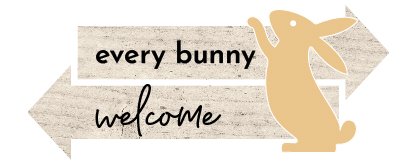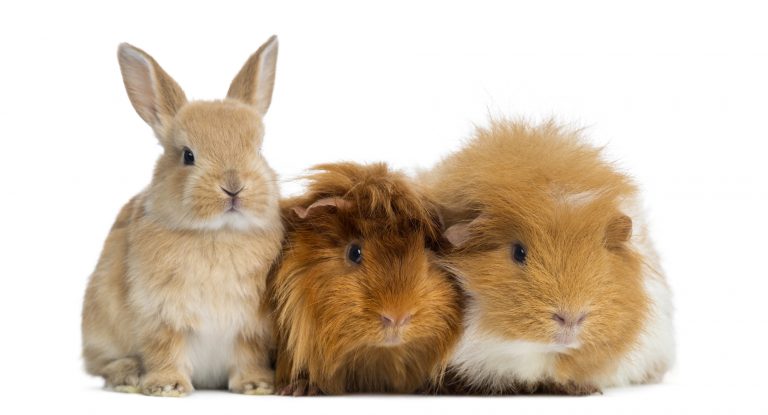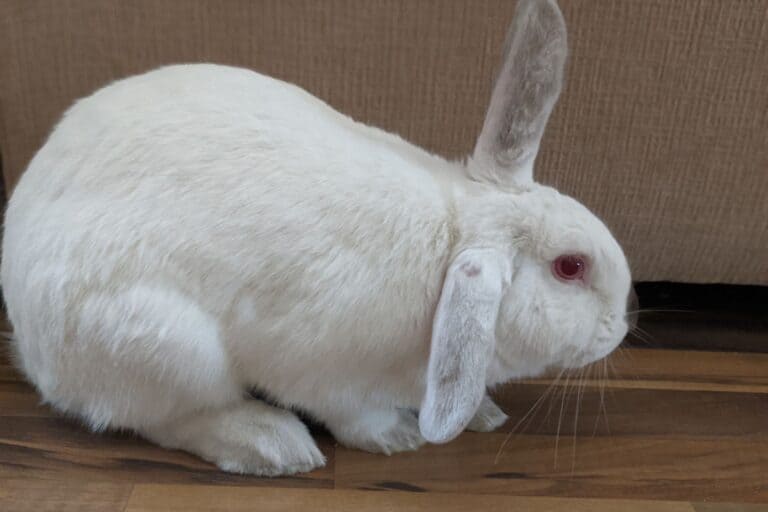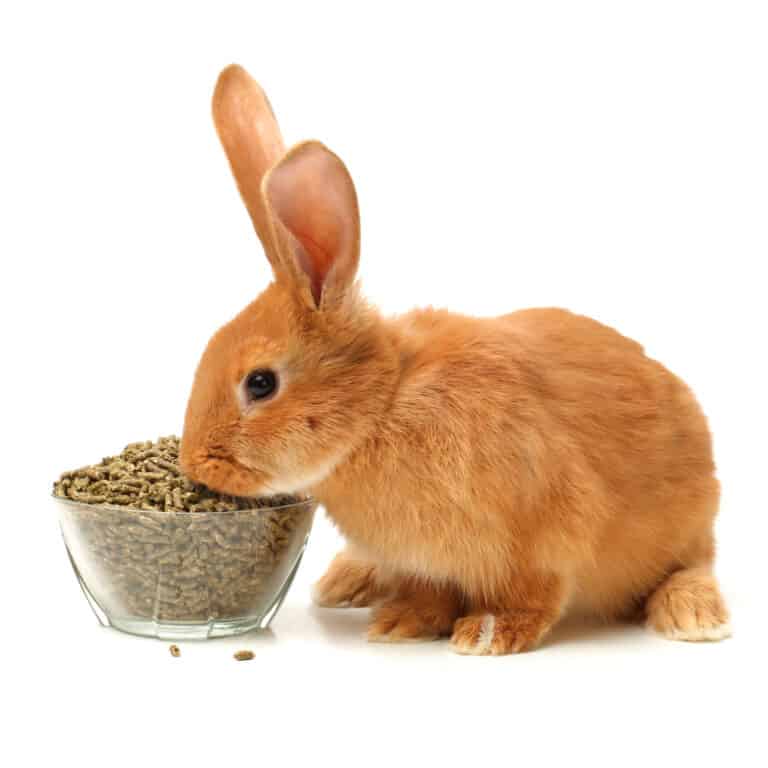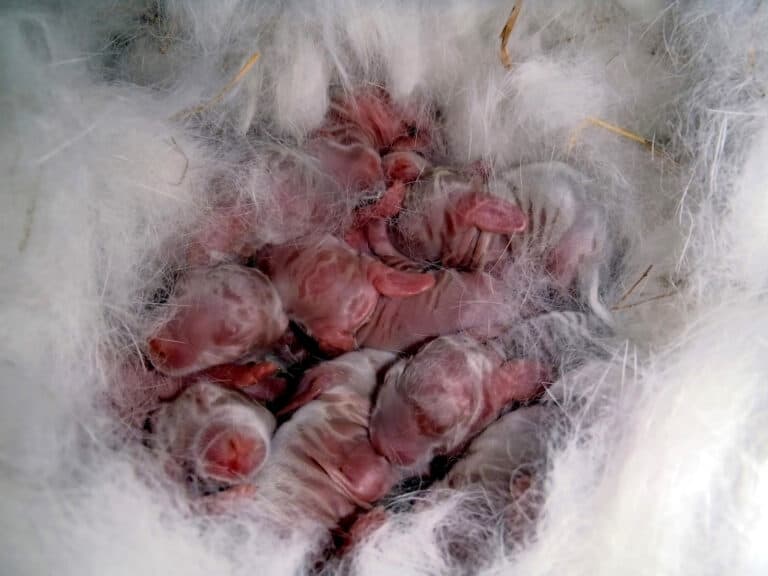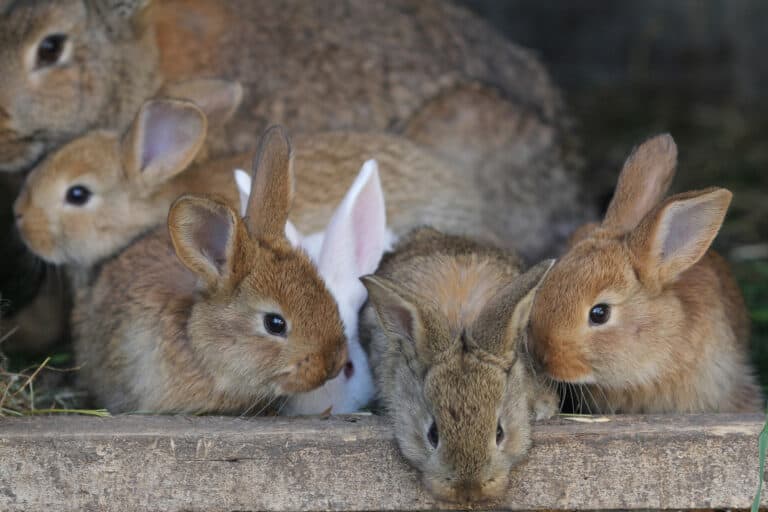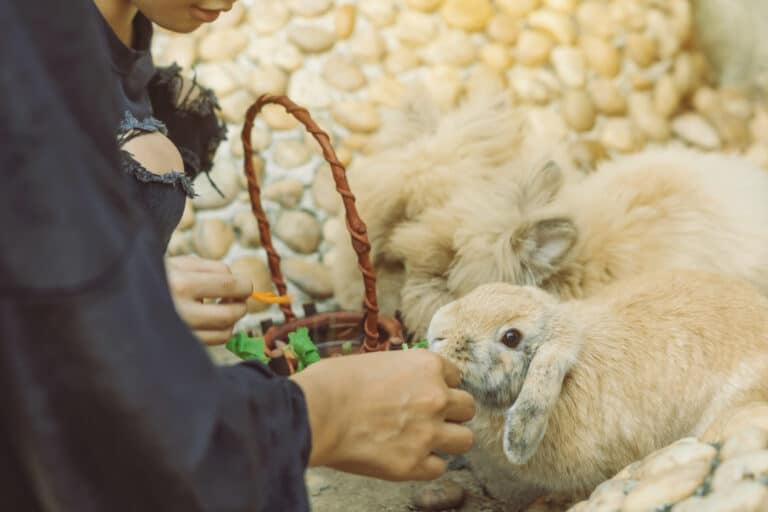Complete Guide to the Best Hay For Rabbits: Reviews & More

When it comes to chow, hay is a bun’s go-to munchie. You’ve probably encountered several varieties and brands in your quest for the ultimate feed for your furry pal. But what type of hay will suit your bun? Let’s see what goes into the list when it comes to the best hay for rabbits.
Why Hay Is Good for Rabbits
Fresh hay should be the mainstay of a rabbit’s diet. But not just any kind will do. Go for good quality hay as much as possible, as it can help your bun avoid many health problems caused by eating inferior food.
As always, providing a balanced diet is one of the best ways of promoting the health of your rabbit, so make sure you sort through the different types of hay to come up with the best choice.
High-quality hay benefits your fur baby in the following ways:
Hay Helps Boost Digestive Health
As herbivores, rabbits require a plant-based, high-fiber diet to keep their digestive system in top shape. The fiber in hay is a great way to keep their guts moving, preventing blockages and maintaining overall GI health. This regular movement lessens the risks of Gastrointestinal stasis (GI stasis), a condition where the digestive system slows down or stops working properly.
Another way that chomping on hay boosts your pet’s digestive health is by helping push out the hairballs that form in his gut. Hairballs, also called Trichobezoars, are clumps of fur that can accumulate in rabbits’ digestive tracts while they groom themselves. Rabbits can’t vomit the hairballs, but the fiber in hay helps push them out of their body through their poop.
It Promotes Dental Health
Buns face a unique dental challenge – their teeth never stop growing. Like guinea pigs and squirrels, your rabbit’s teeth have open roots that allow continuous growth. This is where the constant munching on hay comes to the rescue. The repetitive chewing motion wears down those pearly whites and prevents any overgrowth that could lead to dental issues.

The Nutritional Value of Hay
Hay is a key component of your rabbit’s diet. Fortunately, most of the different hays will provide your happy hopper the nutrients he needs to have a healthy and happy life. Still, the nourishment hay offers depend on the type.
Knowing the nutritional value of different types of hay is essential for rabbit owners like you for several reasons. For one, it helps you tailor the hay selection to match your rabbit’s age and specific dietary requirements, that way you can choose the best rabbit hay so your rabbit maintains a healthy diet.
Take Alfalfa Hay, for example. It’s rich in calcium, making it an excellent choice for young rabbits who require this mineral for their bone development. However, the same high calcium content can pose problems for an adult rabbit’s digestive system, as it can lead to the formation of kidney stones.
Let’s take a closer look at what’s inside the different types of hay:
| Hay types | Calcium | Crude Protein | Crude Fiber |
| Orchard Grass Hay | 0.33% | 10% | 34% |
| Alfalfa Hay | 1.2 to 1.4% | 13 to 19% | 28 to 34% |
| Oat Hay | 0.4% | 10% | 31% |
| Meadow Hay | 0.6% | 7% | 33% |
| Timothy Hay | 0.4 to 0.6% | 8 to 11% | 32 to 34% |
How Much Hay Do Rabbits Need?
It’s a good idea to provide your furry pal with as much as he wants. Hay is crucial for a rabbit’s growth, health, and well-being and should always be available to him.
As a rough guide, adult rabbits typically munch on about 1/4 to 1/2 cups of hay daily. But if you have one of those large rabbit breeds, he might nibble even more. Make sure hay is always easy to get to (nestled in a hay feeder is a great way to offer it), along with fresh, clean water.
You can also serve unlimited hay to baby rabbits once they’re about 2 months of age. However, young buns require a different type of hay than their full-grown counterparts. While mature rabbits do best on Timothy, Meadow, Oat, or Orchard hay, baby rabbits need the extra calcium and protein that Alfalfa Hay provides.
You can also offer Alfalfa Hay to your adult pet rabbits but give only small amounts. This hay has high amounts of calcium and protein, which mature bunnies don’t require, and could lead to some health issues if taken in excess.
What Does First Cutting Mean When It Comes to the Best Hay for Rabbits?
Some rabbit owners, particularly newish ones, sometimes get puzzled by the terms “1st cutting,” “2nd cutting,” and “3rd cutting.”
Well, as its name implies, first-cut hay is the first harvest of the growing season. It’s often the coarsest cut of hay and is typically used to feed livestock like goats and cattle. First-cut hay has higher fiber content than other hay cuts but lesser protein and fat.
The second cutting of hay comes from the second harvest and is usually greener and finer than the first cut, similar to a fresh grass. This second cut hay cut is more nutritious than first cut hay. As for the third cutting, it’s from, well, the third harvest. It contains more fat and protein but the least fiber among the different cuts of hay.

The Best Hay for Rabbits: What Are Your Options
Choosing the best kind of hay for your furry friend doesn’t have to feel overwhelming. Fortunately, most common varieties are at par with one another regarding the nourishment they provide.
Let’s look at the main types of hay and what they offer:
1. Timothy Hay
Timothy Hay is the top choice for rabbits and is often recommended by veterinarians and veteran bunny parents because it suits rabbits of all sizes. Buns relish its taste and texture, while rabbit owners love how it keeps their pets’ digestion and teeth healthy.
It contains less protein and calcium than Alfalfa Hay, which makes it perfect for mature buns. It comes in different cuts that could affect its nutritional content, but it is hands down the best choice for feeding your furry pal.
Find Timothy Hay here.
2. Alfalfa Hay
Alfalfa Hay is a type of legume hay (compared to Timothy Hay, which is a grass hay) and is the softest and sweetest hay type. It has high amounts of calcium and protein, making it ideal for growing buns or helping an underweight rabbit gain a few pounds.
This hay type is perfect for baby rabbits who have been weaned from their mother’s milk. You can give it till your fur baby is around 6 months old and switch to a different hay variety afterward. As a soft hay, Alfalfa Hay has way too much calcium and protein for adult buns, so it’s not a good idea to give it to them regularly.
Find Alfalfa hay here or in most pet stores.
3. Oat Hay
Oats are a type of grass that’s grown for their cereal grain. When picked or harvested before the seed heads ripened, they can be fed to animals that eat hay.
Does your rabbit prefer extra crunch in his food? Then, Oat Hay is a good choice as this is the crunchiest hay variety. It’s not only yummy, but the texture of this hay type is great for your bun’s teeth.
Check out this oat hay by Small Pet Select or it can be found in most feed stores.
4. Orchard Hay
Orchard Hay is close to Timothy Hay when it comes to the nutrients it provides to rabbits. However, it has more leaves and fewer stalks. It’s also softer and a tad sweeter.
Orchard Hay is less dusty than other hay types, so it’s a great option if your bun suffers from allergies. It’s also perfect for older rabbits because it has less protein, is higher in fiber, and is packed with the essential nutrients buns need.
Find orchard hay here.
5. Meadow Hay
Meadow Hay is made from various grasses and plants that grow naturally in meadows. Because it contains a mix of different plant materials, it provides a range of nutrients and diverse textures and flavors that appeal to rabbits.
However, this allows rabbits to pick out the tastier bits (which usually contain more calories). The result? They could gain weight and not get enough fiber.
Check out this meadow hay by Oxbow Animal Health.
Our Recommendation for the Best Hay for Rabbits
When it comes to hay, Oxbow Timothy Hay is our favorite. It’s packed with all the good stuff that will give your bun’s health a boost. Plus, its high fiber content helps maintain good dental and supports healthy digestion.
More on Rabbit Diet
- Is Orchard Hay Good for Rabbits?
- The Best Lettuce for Rabbits: What Type Can They Eat
- Complete Guide to the Best Hay For Rabbits: Reviews & More
- What Can You Feed Wild Rabbits: A Comprehensive Guide
- Can Rabbits Have Cabbage? What You Need to Know!
We hope you enjoyed this post! If you did, will you give it a share or two 🙂 Thank you! ~from Every Bunny Welcome
